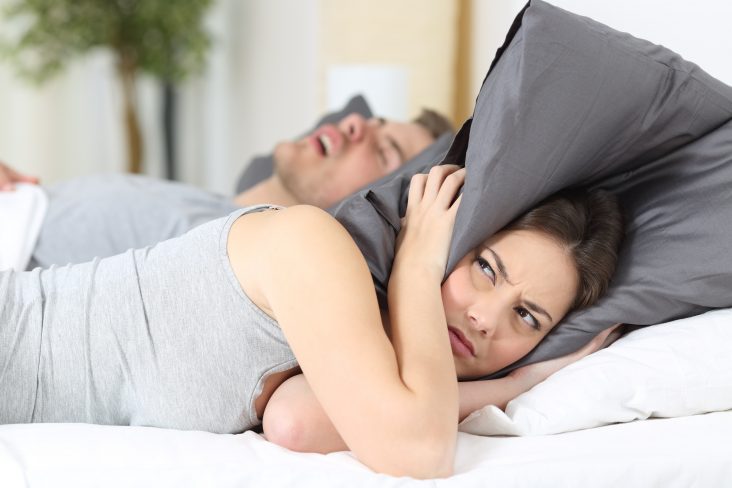While many people do snore, heavy or severe snoring isn’t part of a healthy sleep pattern. Snoring is a sign that you’re not getting enough air with each breath. Pauses in breathing mean that your airway has closed. This is Obstructive Sleep Apnea. Snoring can also be a symptom of a serious health condition like heart disease.
If anyone tells you that you pause in breathing, snort or gasp while sleeping, or you consistently feel unrested in the morning, you should be evaluated for Sleep Apnea.
Symptoms of serious snoring problems:
- periodically stop breathing for a couple seconds at a time
- high volume of snoring is a sign that your body is working really hard to get sufficient oxygen
- excessive daytime sleepiness
Lifestyle changes that may help include:
- losing weight
- not sleeping on your back
- avoid alcohol or drugs that relax your nervous system
- quit smoking (It’s proven that stopping smoking immediately makes it easier for a person to breath better.)
Proper sleep stages throughout the night are important for the body to repair and restore different organs and systems while we sleep. We typically should go through 4 sleep stages every 90 minutes or so, throughout the night. Each sleep stage has its job of what gets restored. Snoring, restless sleep, gasping, frequent waking can all be signs that you have Obstructive Sleep Apnea; a potentially deadly condition.
In a study[1] of 744 college aged who had only mild/moderate obstructive sleep apnea and normal blood pressure at baseline were followed for high blood pressure. There was a strong association for young and middle-aged adults to develop high blood pressure because of their mild-moderate sleep apnea. They also had a higher statistical onset of metabolic syndrome (early diabetes). Older adults (over age 60) didn’t develop high blood pressure. Age seemed to be a benefit.
Custom and highly specific orthotic appliances are provided for differing TMD conditions and offer an alternative to CPAP for patients suffering from snoring and Sleep Breathing Disorders.
Credentialed Dentists in Dental Sleep Medicine and TMJ can work with your sleep doctor to design, adjust, and monitor your progress. Oral appliances are easy to wear and travel with. They require monitoring by a trained dentist periodically.
If you or someone you know has symptoms of sleep apnea, such as snoring, we can help get them diagnosed and treated before high blood pressure or pre-diabetes develop. The earlier it is diagnosed and treated, the healthier you will be over the decades.
[1] Mild-to-Moderate Sleep Apnea is associated with Incident Hypertension: Age Effect
Alexandros N Vgontzas, MD Yun Li, MD Fan He, MS Julio Fernandez-Mendoza, PhDJordan Gaines, PhD Duanping Liao, MD, PhD Maria Basta, MD Edward O Bixler, PhD
Journal SLEEP




